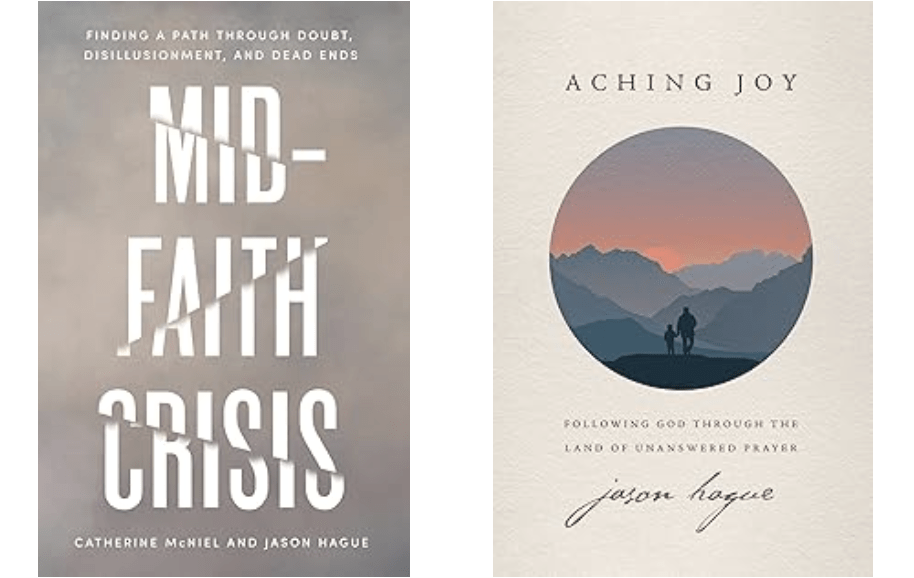My first book, Aching Joy, had a problem. The themes were strong, and I felt confident in the writing, but there was a weakness. I felt like the story was too specific. The book, you see, was a memoir of sorts, in which I told about my relationship with my autistic son, Jack. I recounted my years-long inner battle for hope that he would one day learn to speak and that we would have something like a normal relationship. I wrote about the times we would discover a new strategy or therapy and how we would see promising results, watching his words increase and his anxiety decrease; how we would start to think that maybe we were in the midst of a breakthrough, only to hit a wall of regression the next week.
This was a memoir, but I’m also a pastor, so I did a good deal of teaching in the book, especially about hope itself. I wanted to encourage people to keep going. But my concern was that our story would not feel relatable to most readers. After all, I am in a pretty slim subset of parents with disabled children who cannot speak.
A month into my book launch, however, I received a message from a friend. She was reading my book with a circle of women in her particular demographic who were finding it especially encouraging. But these were not mothers of disabled children. In fact, they were not mothers at all. They were women dealing with infertility.
At first, I was surprised to hear they could find my story relatable at all. But the more I thought about it, the more it made sense: It was not the situation they related to, but the emotion around the situation. It was that desperate desire, held for years, to see a change happen, and the long string of disappointments that turned hope into a risk. I knew hope was scary for parents of disabled children. I never considered that it might also be scary for people struggling to become parents.
I bring this up because Christian writing often tastes bland, and one of the reasons for that, I think, is the author’s desire to appeal to every reader. We want to reach everyone with the hope of Jesus. We don’t want to alienate anybody with our unique experience, so we often stay away from being too specific. Our writing turns vague.
But that is exactly the wrong way to go about it. The specifics of our story are, in fact, the doorways to connection. They make people curious. They make readers lean in. Then, when the reader least expects it, an emotional connection is formed.
Human experience is more varied than we can imagine, but human emotion is universal. No matter what the circumstances of our lives, we all ride the same general roller coaster of hope and terror and elation and mortification. We hurt in different ways, and some hurt profoundly more than others, but we all wrestle and love and fight and run away and laugh till our sides ache. When we get honest and specific about our unique experiences, we will connect with those who may not understand our lives, but who nevertheless feel exactly what we feel. That is the power of a story.
So, friend, if you are hoping to inspire readers through a devotional or a memoir or even a work of moving fiction, lean into the details. Give the reader a clear and vivid glimpse into your unique world. And when you do, don’t be surprised when those who have profoundly different lives tell you how deeply they understand.
Jason Hague is the author of Aching Joy and Mid-Faith Crisis and serves as Associate Pastor of Christ’s Center Church near Eugene, Oregon. He writes with honesty about prayer, doubt, and finding God’s presence in the midst of pain. Jason will keynote at the 2025 Cascade Christian Writers Fall One-Day Conference on Saturday, October 11 at the Suburban Christian Church in Corvallis, Oregon. Visit our conference page for registration details.









